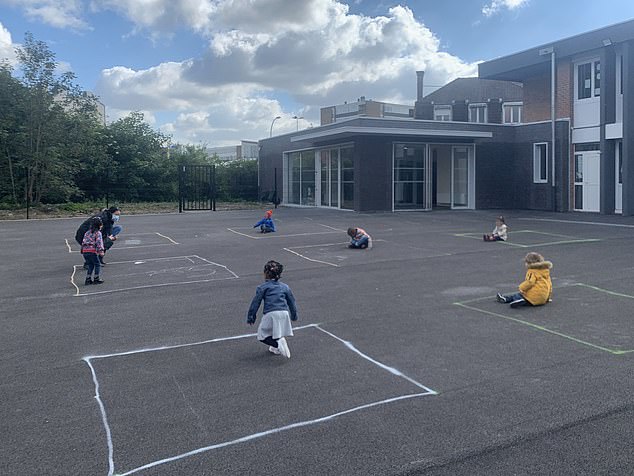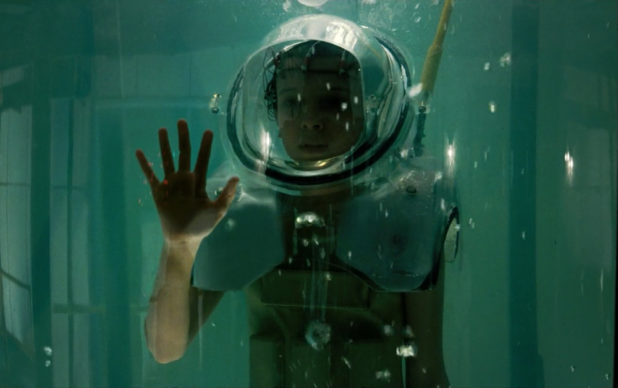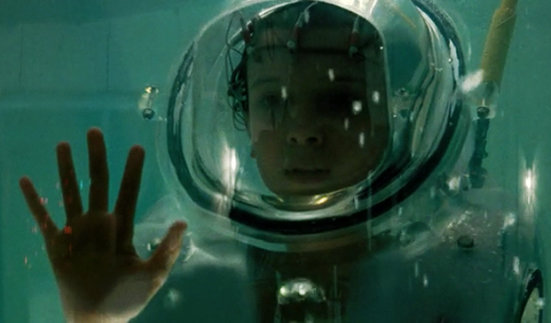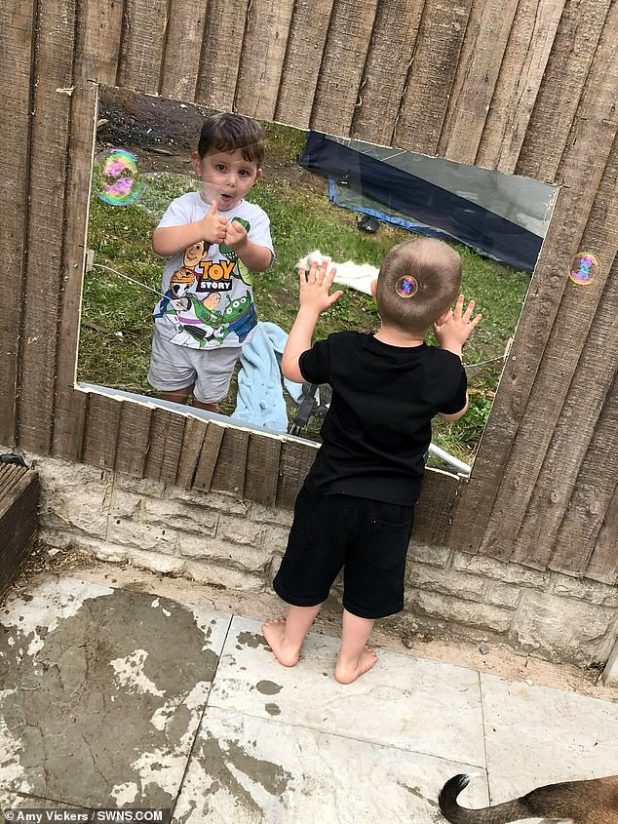
The Doom Virus hysteria is reaching new heights despite all data portraying coronavirus as something as dangerous as the flu.
A heart-breaking photograph of nursery school children forced to play in ‘isolation sections’ in French schools has caused shock and outrage.
The photo, taken in the town of Tourcoing on the border with Belgium, shows boys and girls forced to stay away from each other inside areas marked out with chalk.
It comes after three and four-year-olds were allowed to return to classes following two months of lockdown after the French government eased restrictions this week.
‘I can’t get over this,’ said historian Laurence De Cock, who posted the picture on Twitter. ‘This image is heartbreaking. We can’t call this “school”.
Lionel Top, a TV journalist with the BFM news channel, took the photo on Tuesday and said the children had been told to stay in their zones.
People are being told to respect social distancing.
Respecting social distancing means that kids won’t be able to play with each other, because kids play with each other by getting close to each other and doing normal human stuff.
Things like this are becoming more and more common.
In the United Kingdom, kids are already being trained to live like laboratory test subjects.
A mother has transformed a section of her garden fence into a perspex window in order to allow her toddlers to play with their friend who lives next door amid the coronavirus pandemic.
Siblings Arlo and Arabella Devonport, three and two, from Wakefield, Yorkshire, had been missing their friend and next-door neighbour Leo Adlington, three, during the Covid-19 lockdown when their mother Amy Vickers, 27, came up with a solution.
Ms Vickers decided to make a hole on their communal fence, between their gardens, in order for the children to play with one another and after Leo’s mother Becca agreed, they set to work in order to carry out the construction.
The creation has allowed the three children to safely play together without touching.
So much fun.

The government successfully associated human contact with danger.
If that idea is not rejected and the association remains, society will change dramatically.
Society may stop being “society.”
Take a quick look at what this Psychology Today article from 2010 says about physical contact:
Last week’s Science Times had a neat article about the communicative and healing power of touch that became one of the site’s most emailed articles. And it’s not surprising: We live in a country that’s starved for physical affection, where an outbreak of hugging by high school students prompts media coverage and even alarm, when many other cultures would find it either unremarkable or worth celebrating.
As the Times notes, however, touch can ease pain, lift depression and even possibly increase the odds that a team will win.
But touch is even more vital than this: Babies who are not held, nuzzled, and hugged enough can stop growing, and if the situation lasts long enough, even die.
Researchers discovered this when trying to figure out why some orphanages had infant mortality rates around 30-40%. We now know that orphanages are not suitable places for infants. Babies aged zero to five simply do not receive enough stimulation in group residential care to develop to their full capacity.
Critical here is individualized, physical parental attention. For one, this nurturing is necessary for the brain to learn to connect human contact with pleasure. This association is one of the foundations of empathy: We connect first through soothing touch and shared smiles.
Sadly, babies raised in orphanages often begin to fear touch and avoid it. Without having intensive, repeated, loving contact with the same one or two people, they simply can’t make the proper connections. They don’t get enough repetition with particular people to build in bonding. And that can spell trouble later in life as this early touch helps provide the template for all relationships thereafter.
…
So, if you want empathetic children—and an empathetic culture—touch and be touched.
Are the touch of kids’ parents enough?
Do we know what happens to kids who grow up in a social distancing “lockdown” scenario, unable to have physical contact with their friends when playing?
This is a sick worldwide experiment.

